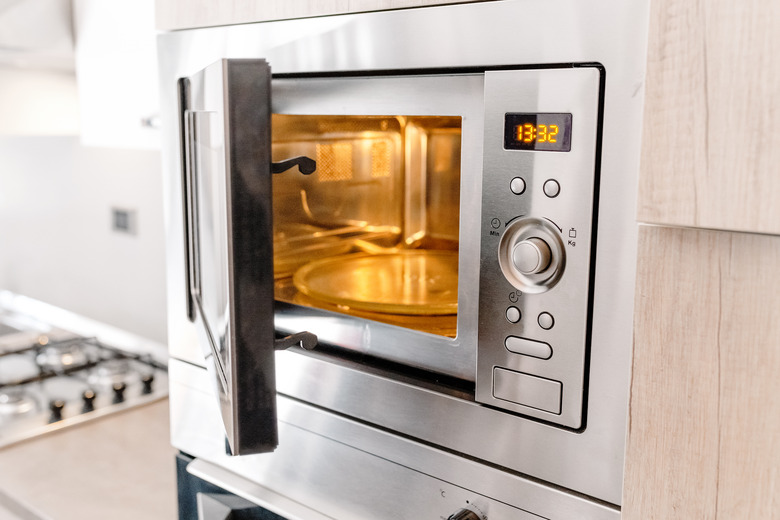How To Determine When To Purchase A New Microwave
We may receive a commission on purchases made from links.
From reheating last night's leftovers to popping buttery popcorn, your microwave makes it quick and easy to enjoy your favorite foods in minutes. However, the convenient appliance doesn't last forever. It's one of the shorter-lived appliances in your home, typically lasting about 10 years if you use it properly and perform regular maintenance. Besides the age of the appliance, other signs give you clues about when it's time to replace your microwave.
Poor Cooking Performance
Poor Cooking Performance
Your microwave might stop working completely to tell you it's time for a replacement, but you'll often notice a gradual decrease in performance before that happens. It might seem like your microwave takes a lot longer than normal to heat foods, or you might notice the cooking is a lot more uneven lately. Microwaved food tends to have hot spots, but changes in how the appliance heats your food can be a sign that it's slowly wearing out.
Broken Cooking Functions
Broken Cooking Functions
Are you slowly losing functions on your microwave? Maybe your microwave defrost button no longer works or only certain buttons respond when you push them. While the microwave is still functional, you're not able to use the appliance to its full potential. It could also be a sign that other things will start failing soon. Replacing it gives you more functionality and helps you avoid a microwave that dies completely.
Strange Smells or Burning Signs
Strange Smells or Burning Signs
You're bound to have a range of food smells coming from your microwave, especially if someone zaps leftover fish or other stinky foods. However, sometimes the microwave smells like the appliance itself is burning. If you smell a burnt or smoky odor and your food isn't overly cooked, unplug the microwave to prevent more issues. It could be a sign of a mechanical failure that's causing the unit to overheat.
You might also see sparks, flashes, or smoke coming from the appliance. This is always a sign that it's time to replace the microwave because it's no longer safe to operate. It typically means the unit is short-circuiting.
Strange Microwave Sounds
Strange Microwave Sounds
Listen to your microwave for additional clues. You know what the normal hum of a microwave sounds like, so it's usually obvious if your microwave starts making a new sound, such as a loud buzzing or grinding. New sounds can sometimes come from a stuck turntable or malfunctioning fan blades that can be fixed. They can also be a sign of something more serious that isn't as easy to fix.
Ineffective Door Seals
Ineffective Door Seals
Your door seal and latch are important for operating your microwave safely. The seal helps protect you from the radiation that the microwave uses to heat the food. If the door doesn't latch properly or the seal is damaged, it's time for a new microwave.
Outdated Microwave Appearance
Outdated Microwave Appearance
If your microwave has been a part of your kitchen decor for several years, you might simply find its appearance to be outdated. You might choose to update the microwave if it's making your kitchen look old. Some people also choose to update all kitchen appliances at once to keep a consistent look. If you're doing a kitchen remodel or replacing another appliance that stopped working, you might choose to replace the microwave too. For example, you might upgrade to a stainless steel microwave if you're changing your stove, dishwasher, and fridge to stainless steel.
